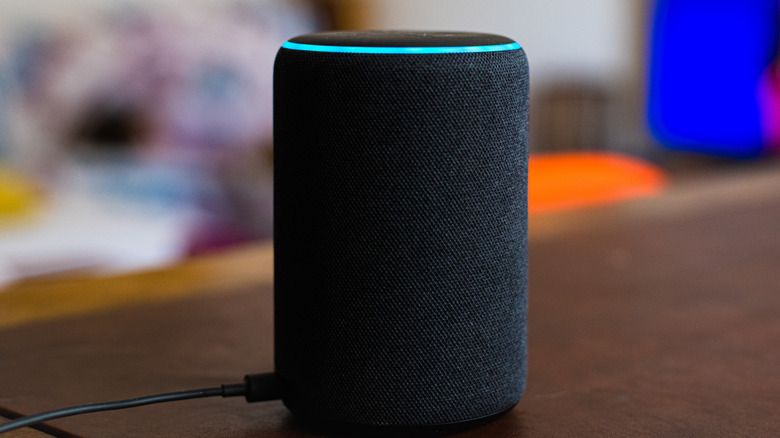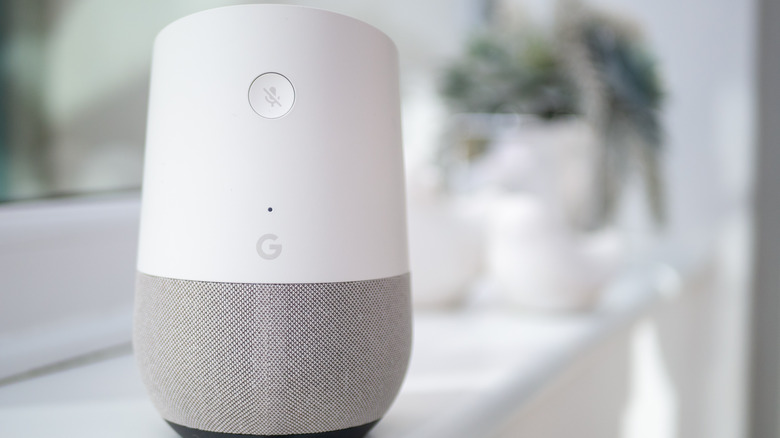Alexa Vs. Google Home: Which Smart Home System Is Best For You?
While there are fewer flying cars in 2024 than once predicted, there's no doubt we're living in the future. Amazing technology abounds, and for many homeowners, smart devices and technology have become a mainstay in the home. If you've yet to take the plunge, you should know that making your house a smart home can be well worth it. Doing so can offer a lot of convenience in your everyday life, allowing you to turn on lights, control appliances, change your thermostat, check who's at your door, and do much more using simple voice commands, a smart display, or a smartphone app.
When transforming your home, one key consideration is whether to use Amazon Alexa or Google Home. Either of these smart speakers can serve as the hub of your smart home system and do many of the same things– with some key differences. While you can use both, connecting all of your devices to only one of these smart home systems is easier. While your final decision may depend on which service you already use the most, Amazon or Google, you should also consider other differences.
Amazon Alexa offers more tech integrations and is ideal if you often rely on Amazon services and make purchases from the online retailer. Google Home is a bit smarter and excels at understanding conversational language and commands. Since it connects with the leading search engine, it answers questions well and with more detail than Amazon Alexa.
Why Alexa might be the best choice for you
Amazon smart speakers are widely used and have a much larger market share than Google in the smart speaker market. The Amazon Echo was introduced in 2014, a couple of years before Google's first competing device. Amazon Alexa connects to Amazon services, so you can easily track packages, make purchases, and access Amazon Music and other services. If you already use Amazon regularly, Alexa is probably the best choice for your home.
Amazon's smart speakers are high-quality, but Alexa also supports a high number of smart technology integrations to modernize your home, powering more than 140,000 devices and 100,000 voice apps. With so much compatibility, you'll have plenty of options when choosing a smart home security system or other smart technology. You can also set advanced routines, automating your smart home and enabling devices to work together in predictable ways.
On the negative side, Amazon displays don't work with quite as many streaming services as Google displays. Although routines are robust, they can be somewhat difficult to create, and app controls could be more intuitive. In addition, voice controls aren't perfect — its conversational technology isn't as advanced as Google's, so it will fail to understand multiple voice commands in quick succession. You'll have to make one command at a time. Another drawback to Amazon Alexa is that the service will often recommend services and products and try to sell them to you, which can become tiresome.
How Google Home is giving Alexa a run for its money
While not as popular as Alexa, Google Home is the second most popular smart speaker. Google Home can do almost everything Alexa can, but instead of integrating with Amazon, it integrates with your Google account. You can control all the smart devices in your home with your voice and the easy-to-use app. Google Home's impressive smart displays work with many video streaming services. As mentioned above, Google Home stands out in its understanding of conversational voice commands. You can make multiple commands, and Google will recognize and respond to each of them. Since Google Home connects to Google Search, you can always get the information you need effortlessly.
On the other hand, the routines you can set up with Google aren't as complex as those you can create with Alexa. Google also doesn't have as many integrations. Although it has more than 50,000 integrations, this is about a third of what Alexa offers. Overall, you can't go wrong with either of these smart home systems, so your personal preferences will be the deciding factor. Google Home is a great choice if you want a device that's easier to command. Google also offers high-quality displays and more streaming options. Alexa is best if you use Amazon services regularly and need to set advanced home routines. It's also ideal if you want more device integrations, although Google's integrations will be more than enough for most homeowners.


